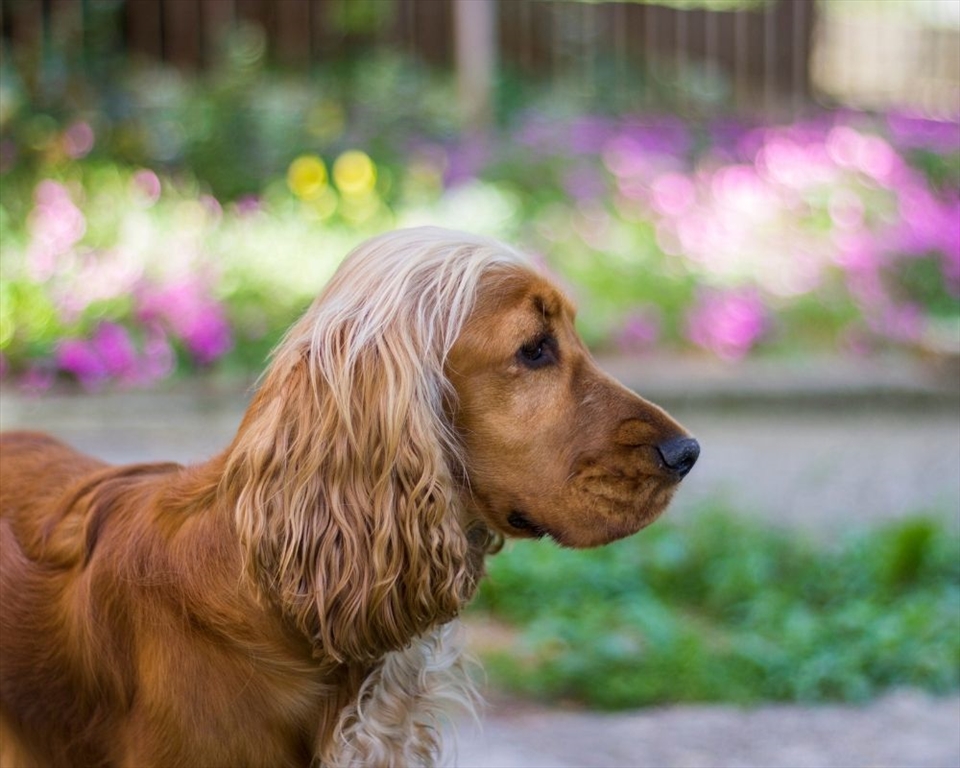How to Make Your Garden Pet Friendly
With summer well and truly in the air, and glimpses of beautiful sunny weather making an appearance, now is the time of the year that many of us hone our green thumbs in the garden! Of course, gardening for a pet owner – be that a cat or dog – can look a little different than your average gardener as there are lots of considerations to keep in mind in order to keep them happy, healthy, and safe. Check out some tips from our team:
What plants are safe for my pet?
Unfortunately, your primary worry as a pet owner isn’t whether your four-legged friend will immediately dig up your freshly planted flowers – before sprucing up your garden space with bright and beautiful flowers, it is essential you do your research on pet-friendly plants. The likes of rosemary, sage, snapdragon, roses, and sunflowers get the green light. Calendula is also safe for dogs however it is important to note that its stem and leaves contain salicylic acid which can be toxic to some cats. Cats also tend to dislike any plants that give off a citrus like smell such as lemon verbena, lemon balm, and lemon-scented geraniums. A very popular plant choice for cat owners is nepeta, which is part of the catnip family – as well as looking attractive, it will be adored by your feline friends.
What plants are dangerous for my pet?
There are number of plants you should steer clear of:
- Lilies
- Chrysanthemums
- Daffodil bulbs
- Peonies
- Tulips
- Wisteria
- Foxgloves
- Hydrangea
- Yew
- Azalea
- Rhododendron
- Forest flames
- Larkspur
- Tomato plants
Before purchasing any plant, do your research to look up its toxicity. Should your pet come into contact with any toxic plants or substances, make sure you aware of the signs and symptoms associated with this. Depending on the type and amount ingested, symptoms can vary, but look out for signs of lethargy, vomiting, diarrhea, breathing difficulties, or drooling, and seek immediate veterinary treatment.
How can I make my garden fun for my pet?
Our animals adore exploring, so the more interactive, intriguing, and exciting you can make your garden, the better! Doing so can help encourage your pets’ natural behaviours of foraging, sniffing and general exploring (some call this nosiness!) – this all falls under pet enrichment and can greatly improve their overall wellbeing. There are many different ideas you can try in your garden to help stimulate and delight your pet’s senses. A range of textures from grass and wood chips to pet-friendly sand, coupled with a few of their favourite toys is a perfect combination. Introducing a range of pet-friendly plants, dotted throughout your garden at different heights also gives your dog lots of investigating to do. Steps and walls offer lots of climbing and can help encourage exercise and tire them out at the end of a long day! You may also have the opportunity to have a nice water feature such as a doggie paddling pool – an essential on a warm summers’ day. These are great to prevent overheating, but we recommend always closely supervising your pet when in use.
How can I pet proof my garden?
Sometimes our pets can be master escape artists, and to prevent separation from your four-legged friend, ensure you have secure high fencing in place. This is especially important in the cases of rescued pets who may be a little more skittish and more likely to flee if spooked by something. Regularly inspect your fencing to check for any broken panels or small gaps that they could discover and take advantage of. An essential part of pet ownership, which is also a legal requirement, is the microchipping of your dog with accurate and up to date ownership information. This is not a legal requirement for cat owners however it is recommended as it can increase the likelihood of being reunited with your pet should you be separated.
How can I safely deal with garden pests?
Gardens can unfortunately attract a few unwanted visitors such as slugs and snails but rather than reaching for pesticides, keep in mind that these can be extremely toxic to pets and other wildlife. Instead, consider some natural alternatives instead:
- Crushed eggshells can help keep slugs and snails away from your plants
- Hedgehogs and birds can help curb your pest population – consider introducing bird feeders and making your garden ‘hog friendly’
Let’s hope some long spells of sunshine are on the way, so you and your pet can safely enjoy your garden space together!
Back









